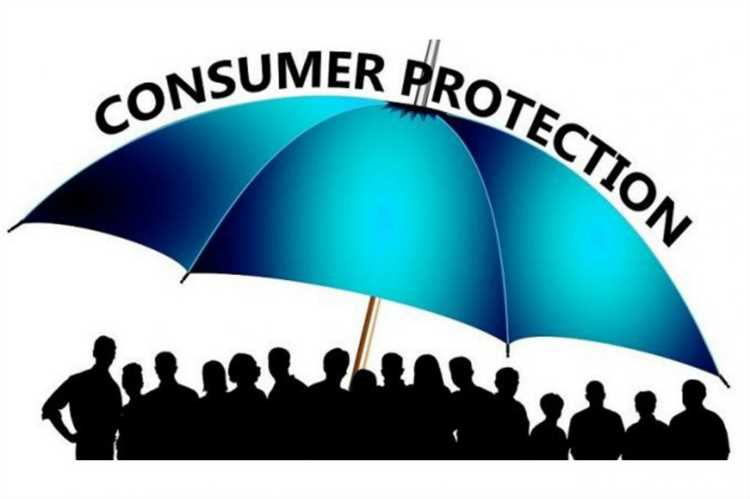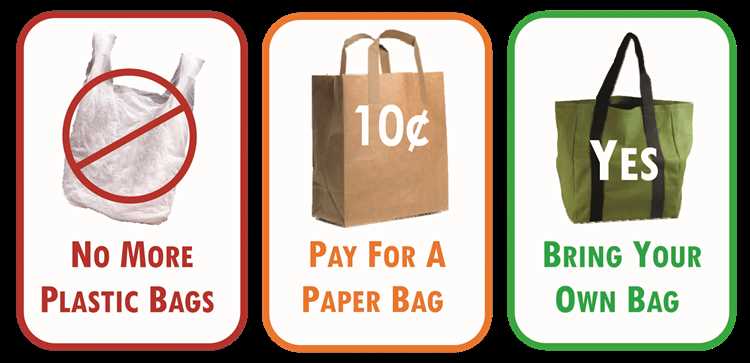Are you tired of paying extra for a carry bag every time you shop? Wondering if it’s legal for retailers to charge you for something that was once free? In recent years, the practice of charging for carry bags has become increasingly common, raising questions about its legality and fairness.
Charging for carry bags is a contentious issue that has sparked debates around the world. Some argue that it’s a necessary step to reduce plastic waste and encourage people to bring their own bags. Others view it as a sneaky way for retailers to increase their profits. So, is it legal?
In many countries, regulations regarding the sale of carry bags vary. Some places have banned plastic bags altogether, while others allow retailers to charge a fee for them. In some cases, the money collected from bag sales is explicitly earmarked for environmental initiatives. However, the legality of charging for carry bags can be a gray area, with different interpretations and enforcement.
Despite the lack of a universal law on this matter, charging for carry bags has become increasingly common, particularly in efforts to reduce single-use plastic waste. Retailers argue that it helps promote sustainability and encourages shoppers to bring their own reusable bags. Nevertheless, there are concerns that this practice disproportionately affects low-income individuals who may not have the means to purchase reusable alternatives.
- Is Charging for Carry Bags Legal?
- Understanding the Relevance of Bag Charges
- Legal Regulations on Carry Bag Charges
- Environmental Concerns
- Consumer Protection Laws
- Local Regulations
- Implications for Retailers and Consumers
- Question-answer:
- Is it legal for stores to charge for carry bags?
- Why do some stores charge for carry bags?
- How much do stores typically charge for carry bags?
- Are there any exceptions to charging for carry bags?
- What are the benefits of charging for carry bags?
- Is charging for carry bags legal?
- Why do stores charge for carry bags?
Is Charging for Carry Bags Legal?

Charging for carry bags is a practice that is increasingly being adopted by retailers around the world. However, the legality of this practice varies from country to country and even within different regions of the same country.
In some places, charging for carry bags is completely legal and even encouraged as a way to reduce plastic waste and promote environmental sustainability. In these cases, retailers may charge a small fee for each bag or offer reusable bags for purchase.
On the other hand, there are places where charging for carry bags is illegal or highly regulated. In these jurisdictions, retailers may be prohibited from charging for bags or have strict limitations on when and how they can charge for them.
The legality of charging for carry bags often depends on the specific laws and regulations of the country or region. These laws may be aimed at reducing waste, protecting the environment, or promoting certain business practices. For example, some places may require retailers to provide free bags as part of their commitment to customer service.
It’s important for retailers to understand the laws and regulations regarding charging for carry bags in their specific jurisdiction. Failure to comply with these regulations can result in fines and other legal consequences.
| Pros of charging for carry bags | Cons of charging for carry bags |
|---|---|
| – Reduces plastic waste | – Additional cost to customers |
| – Encourages reusable bag usage | – Potential backlash from customers |
| – Generates revenue for retailers | – Compliance with regulations |
| – Promotes environmental sustainability | – Potential negative impact on business |
In conclusion, the legality of charging for carry bags varies depending on the country or region. It’s important for retailers to be aware of the laws and regulations in their jurisdiction and to consider the pros and cons before implementing such a practice.
Understanding the Relevance of Bag Charges

Bag charges have become a hot topic in recent years, sparking debates among consumers, retailers, and environmentalists. With the growing concern over plastic waste and its impact on the environment, many countries and regions have implemented bag charges as a way to reduce the consumption of single-use bags.
The relevance of bag charges lies in their ability to discourage the use of disposable bags and promote more sustainable alternatives. By imposing a fee for carry bags, consumers are encouraged to bring their reusable bags when shopping, reducing the need for plastic or paper bags. This shift in consumer behavior can have a significant impact on reducing plastic waste and conserving resources.
Bag charges also serve as a tool for retailers to offset the costs associated with providing free bags. By charging for bags, retailers can cover the expenses incurred in purchasing and distributing bags, ultimately leading to cost savings. These savings can then be reinvested in other areas of the business or used to support environmentally-friendly initiatives.
Furthermore, bag charges provide an opportunity for retailers to contribute to sustainability efforts and enhance their corporate social responsibility. By implementing bag charges and promoting the use of reusable bags, retailers can align themselves with the growing demand for eco-friendly practices, attracting environmentally-conscious customers and improving their brand image.
It’s worth noting that bag charges are often accompanied by exemptions for certain types of bags, such as those used for items like raw meat, fish, or prescription medications. These exemptions ensure that essential or sensitive items are still provided with suitable packaging while discouraging the unnecessary use of carry bags for other items.
In conclusion, bag charges are not only legal but also play a crucial role in addressing the global issue of plastic waste. By discouraging the use of disposable bags and promoting the adoption of reusable alternatives, bag charges contribute to reducing environmental impact and fostering sustainable practices for both consumers and retailers.
Legal Regulations on Carry Bag Charges
Charging customers for carry bags has become a common practice in many retail stores and supermarkets. However, it is essential for businesses to be aware of the legal regulations in place regarding carry bag charges to avoid any potential legal issues.
Environmental Concerns
One of the main reasons why governments have implemented regulations regarding carry bag charges is to address the environmental concerns associated with single-use plastic bags. These bags often end up in landfills, causing harm to ecosystems and wildlife. By charging for carry bags, businesses are encouraged to promote the use of reusable bags, reducing the overall consumption of plastic bags.
Consumer Protection Laws

When implementing carry bag charges, businesses must ensure that they comply with consumer protection laws. This includes providing clear information about the charges to customers, including the price of the bags and the reasons for the charges. Unauthorized fees or misleading practices can lead to legal repercussions and damage to a business’s reputation.
Moreover, businesses should also consider the impact of carry bag charges on vulnerable customers. Certain demographics, such as low-income individuals or individuals with disabilities, may rely more heavily on plastic bags. To avoid discrimination and ensure equal access to carry bags, businesses should provide alternative options or exemptions for these customers.
Local Regulations
It is important for businesses to keep in mind that carry bag charges may be regulated differently in different jurisdictions. Local governments may have specific regulations or guidelines in place regarding the implementation and pricing of carry bag charges. Businesses should familiarize themselves with these local regulations to ensure compliance and avoid any potential penalties.
Additionally, it is worth noting that some jurisdictions have implemented outright bans on certain types of plastic bags, regardless of whether a charge is imposed or not. Thus, businesses should also be aware of any bans on plastic bags and consider alternative packaging options to align with these regulations.
In conclusion, while charging for carry bags has become a common practice, businesses should be aware of the legal regulations surrounding these charges. By understanding and complying with environmental concerns, consumer protection laws, and local regulations, businesses can ensure they implement carry bag charges legally and responsibly.
Implications for Retailers and Consumers
There are several implications that the charging for carry bags has for both retailers and consumers:
- Retailers can benefit financially from the charging for carry bags. By implementing a fee for bags, retailers can increase their revenue and offset the costs associated with providing free bags.
- Charging for carry bags can encourage consumers to bring their own reusable bags. This can help to reduce the amount of single-use plastic bags that end up in the environment and contribute to pollution.
- Implementing a fee for bags may also lead to a decrease in the demand for bags overall. Consumers may be more mindful of their bag usage and only take what they truly need, reducing waste.
- Some consumers may be resistant to the idea of paying for bags, which could result in negative feedback or a decrease in customer satisfaction. Retailers should consider communicating the reasons behind the fee and promote the benefits of reducing plastic waste.
- For consumers, charging for carry bags can serve as a reminder to bring reusable bags when shopping. It can also provide an opportunity for them to reconsider their bag usage and make more sustainable choices.
- There may be concerns about the impact that bag fees have on low-income individuals who rely on free bags from retailers. Retailers should consider providing alternative options, such as discounted or free reusable bags, to ensure accessibility for all consumers.
Overall, charging for carry bags has implications for both retailers and consumers. While it can lead to financial benefits for retailers and encourage more sustainable bag usage, there may also be challenges in terms of customer perception and accessibility for certain individuals.
Question-answer:
Is it legal for stores to charge for carry bags?
Yes, it is legal for stores to charge for carry bags. Many countries and cities have implemented laws or regulations that require stores to charge customers for using carry bags as a way to reduce plastic waste and encourage reusable bag usage.
Why do some stores charge for carry bags?
Some stores charge for carry bags to promote environmental sustainability and reduce plastic waste. By charging for carry bags, stores hope to encourage customers to bring their own reusable bags and decrease the demand for single-use plastic bags. It is also a way for stores to offset the cost of providing bags and contribute to environmental initiatives.
How much do stores typically charge for carry bags?
The cost of carry bags can vary depending on the store and location. In some places, stores may charge a nominal fee, such as $0.05 or $0.10 per bag. In other places, the cost may be higher, ranging from $0.50 to $2 per bag. The purpose of the fee is to discourage the use of single-use bags and encourage customers to bring their own reusable bags.
Are there any exceptions to charging for carry bags?
Yes, there are often exceptions to charging for carry bags. Many laws or regulations exempt certain types of bags from the fee, such as bags used for carrying raw meat or fish, prescription medication bags, or bags provided by restaurants for takeout food. Additionally, some stores may offer free bags for customers who make a minimum purchase or have a loyalty program.
What are the benefits of charging for carry bags?
Charging for carry bags has several benefits. It helps to reduce plastic waste and lessen the environmental impact of single-use bags. By encouraging customers to bring their own reusable bags, it promotes sustainable practices and raises awareness about the importance of reducing plastic consumption. It can also generate funds for environmental initiatives and encourage stores to find alternatives to single-use bags.
Is charging for carry bags legal?
Yes, charging for carry bags is legal in many countries and states. Many jurisdictions have implemented regulations to encourage the use of reusable bags and reduce single-use plastic bags. Charging for bags is seen as a way to discourage their use and promote environmentally friendly alternatives.
Why do stores charge for carry bags?
Stores charge for carry bags for a number of reasons. Firstly, it helps to reduce the use of single-use plastic bags, which are harmful to the environment. By charging for bags, stores encourage customers to bring their own reusable bags. Secondly, it allows stores to recoup the cost of providing bags to customers. Additionally, charging for bags can be a way for stores to support local environmental initiatives or charities.